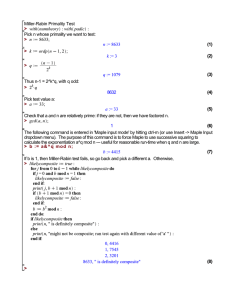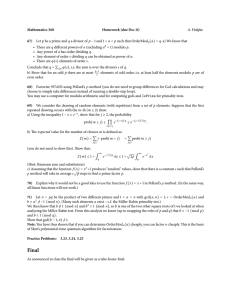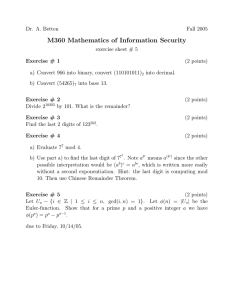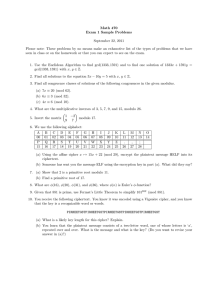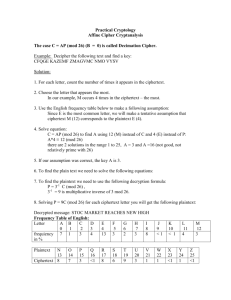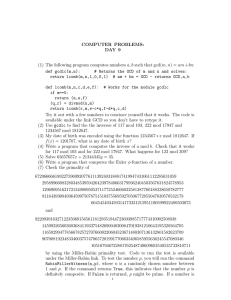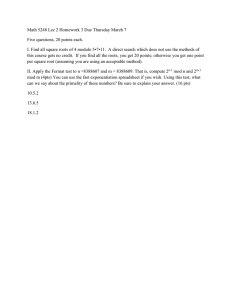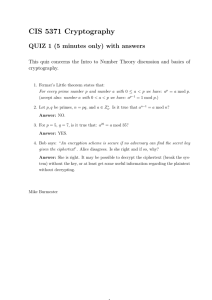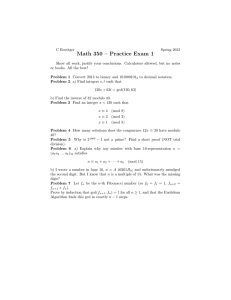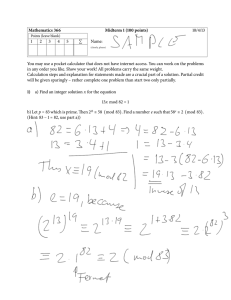Introduction to Cryptography Summer ’03 Homework #2 Assigned: Thursday, 6/19/03 Due: Thursday, 7/3/03
advertisement
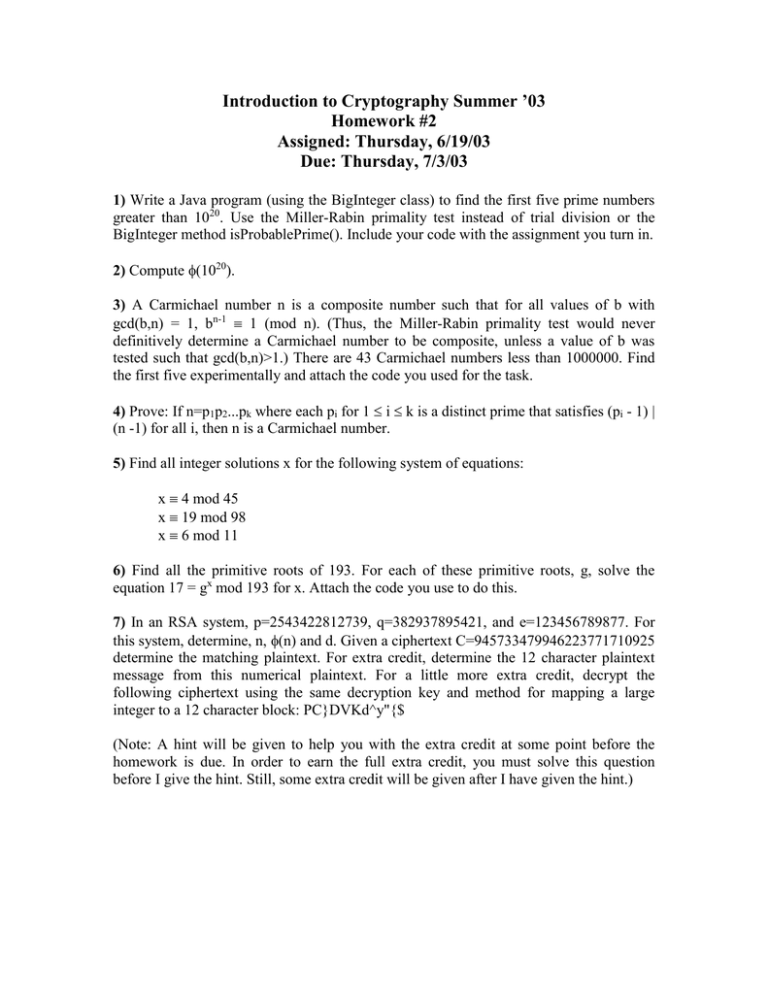
Introduction to Cryptography Summer ’03
Homework #2
Assigned: Thursday, 6/19/03
Due: Thursday, 7/3/03
1) Write a Java program (using the BigInteger class) to find the first five prime numbers
greater than 1020. Use the Miller-Rabin primality test instead of trial division or the
BigInteger method isProbablePrime(). Include your code with the assignment you turn in.
2) Compute (1020).
3) A Carmichael number n is a composite number such that for all values of b with
gcd(b,n) = 1, bn-1 1 (mod n). (Thus, the Miller-Rabin primality test would never
definitively determine a Carmichael number to be composite, unless a value of b was
tested such that gcd(b,n)>1.) There are 43 Carmichael numbers less than 1000000. Find
the first five experimentally and attach the code you used for the task.
4) Prove: If n=p1p2...pk where each pi for 1 i k is a distinct prime that satisfies (pi - 1) |
(n -1) for all i, then n is a Carmichael number.
5) Find all integer solutions x for the following system of equations:
x 4 mod 45
x 19 mod 98
x 6 mod 11
6) Find all the primitive roots of 193. For each of these primitive roots, g, solve the
equation 17 = gx mod 193 for x. Attach the code you use to do this.
7) In an RSA system, p=2543422812739, q=382937895421, and e=123456789877. For
this system, determine, n, (n) and d. Given a ciphertext C=945733479946223771710925
determine the matching plaintext. For extra credit, determine the 12 character plaintext
message from this numerical plaintext. For a little more extra credit, decrypt the
following ciphertext using the same decryption key and method for mapping a large
integer to a 12 character block: PC}DVKd^y"{$
(Note: A hint will be given to help you with the extra credit at some point before the
homework is due. In order to earn the full extra credit, you must solve this question
before I give the hint. Still, some extra credit will be given after I have given the hint.)
